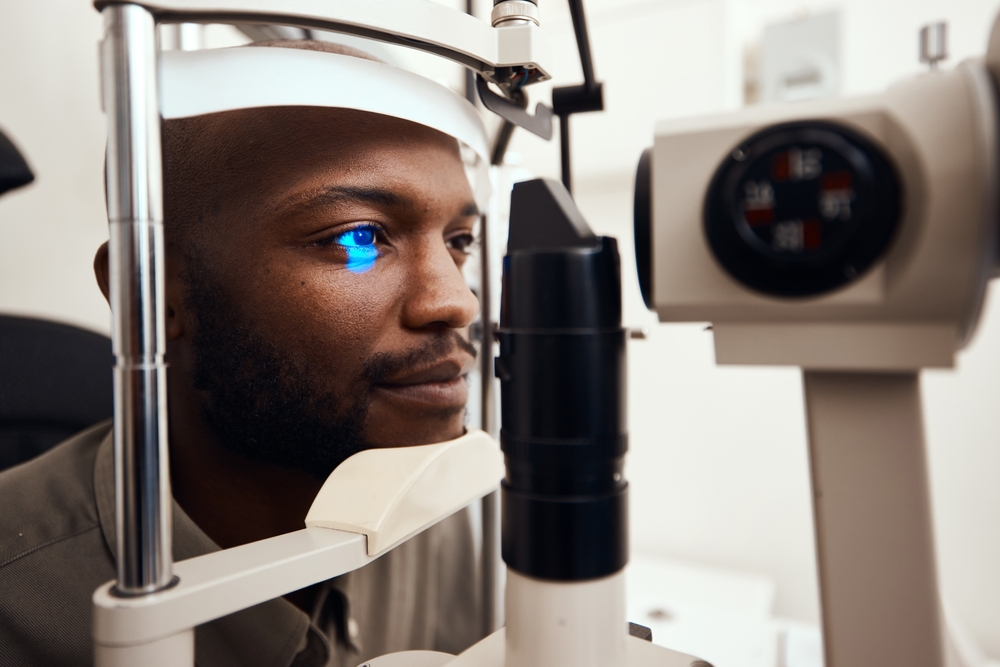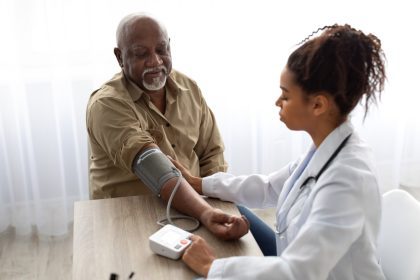Changes in your vision or eye health could be more than just signs of aging or digital eye strain — they might be warning signals of high blood pressure, a condition often called the silent killer. While high blood pressure typically presents no obvious symptoms, your eyes may offer early warning signs that could help prevent serious complications.
The eye-blood pressure connection
High blood pressure silently damages blood vessels throughout your body, including the delicate vessels in your eyes. This damage, known as hypertensive retinopathy, can threaten your vision and serve as an indicator of your overall cardiovascular health.
Key effects on eye health include:
- Damaged retinal blood vessels
- Restricted blood flow to the optic nerve
- Fluid buildup under the retina
- Potential vision loss if left untreated
- Changes in eye pressure
Critical eye conditions linked to hypertension
Several eye conditions directly connect to elevated blood pressure levels. Understanding these conditions helps identify potential health risks early:
Hypertensive retinopathy occurs when high blood pressure damages retinal blood vessels. This condition can progress from mild vision changes to significant sight impairment if blood pressure remains uncontrolled.
Retinal vein occlusion develops when blood vessels carrying blood from the retina become blocked. This blockage can cause sudden vision changes and requires immediate medical attention.
Optic nerve damage results from reduced blood flow, potentially leading to permanent vision loss without proper intervention. Regular eye exams can detect early signs of this condition.
Recognizing warning signs
Early detection of eye-related symptoms can lead to better health outcomes. Watch for these indicators:
- Persistent blurred or double vision
- Sudden vision changes
- Headaches with visual disturbances
- New floaters or spots
- Difficulty focusing
- Eye pain or pressure
- Changes in color perception
Prevention and management strategies
Protecting your eyes from high blood pressure damage requires a comprehensive approach:
Monitor your numbers:
- Check blood pressure regularly
- Track changes over time
- Report significant variations to your doctor
- Keep a blood pressure log
Maintain healthy habits:
- Exercise regularly
- Reduce sodium intake
- Manage stress effectively
- Maintain a healthy weight
- Stay hydrated
Support eye health:
- Schedule regular eye exams
- Protect eyes from UV damage
- Take screen breaks
- Eat vision-supporting foods
- Report changes promptly
The role of comprehensive eye exams
Regular eye examinations serve as a crucial early warning system. During these exams, doctors can observe blood vessels in your eyes, potentially detecting high blood pressure before other symptoms appear.
These examinations include:
- Dilated eye checks
- Pressure measurements
- Visual field tests
- Retinal imaging
- Blood vessel assessment
Dietary considerations for eye health
A proper diet supports both eye health and blood pressure management:
Essential nutrients include:
- Omega-3 fatty acids from fish
- Antioxidants from colorful vegetables
- Vitamin C from citrus fruits
- Zinc from whole grains
- Lutein from leafy greens
Long-term health implications
Addressing eye health and blood pressure together provides comprehensive health benefits:
- Preserved vision quality
- Reduced risk of heart disease
- Better brain health
- Improved overall circulation
- Enhanced quality of life
Taking action
Protecting your vision requires proactive steps and consistent attention to your health. Regular medical check-ups, lifestyle modifications, and prompt attention to changes in your vision can help prevent serious complications.
Consider these action items:
- Schedule comprehensive eye exams
- Monitor blood pressure regularly
- Maintain healthy lifestyle habits
- Report changes promptly
- Follow prescribed treatments
- Stay informed about eye health
Looking forward
Understanding the connection between eye health and blood pressure empowers you to take control of your health. By recognizing early warning signs and taking appropriate action, you can protect both your vision and your overall well-being for years to come. Medical professionals increasingly recognize the eyes as valuable indicators of cardiovascular health, making regular eye examinations a crucial part of your overall health monitoring strategy. Your commitment to understanding and addressing these health connections today can lead to better health outcomes tomorrow.
This story was created using AI technology.






